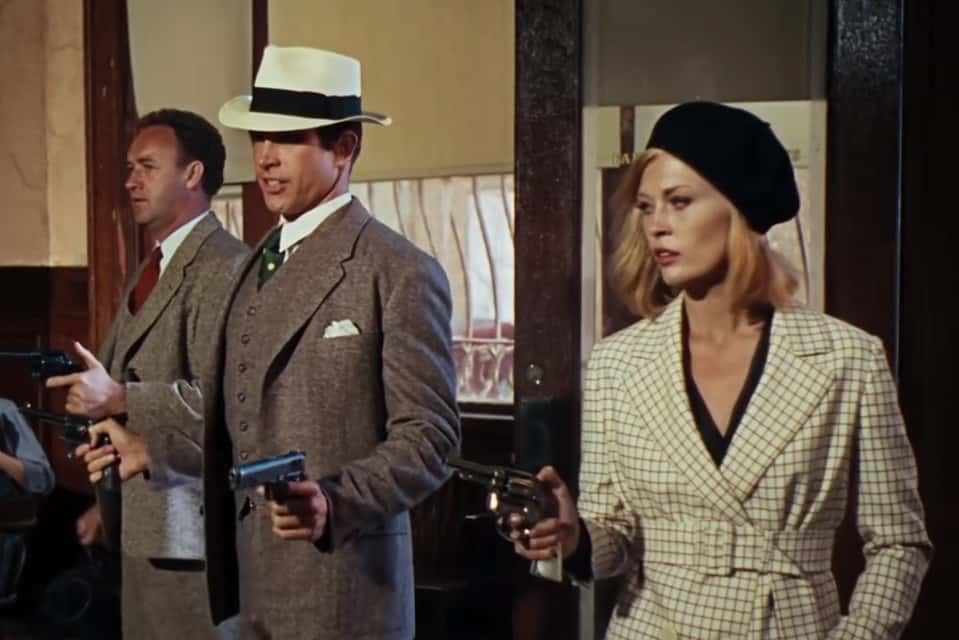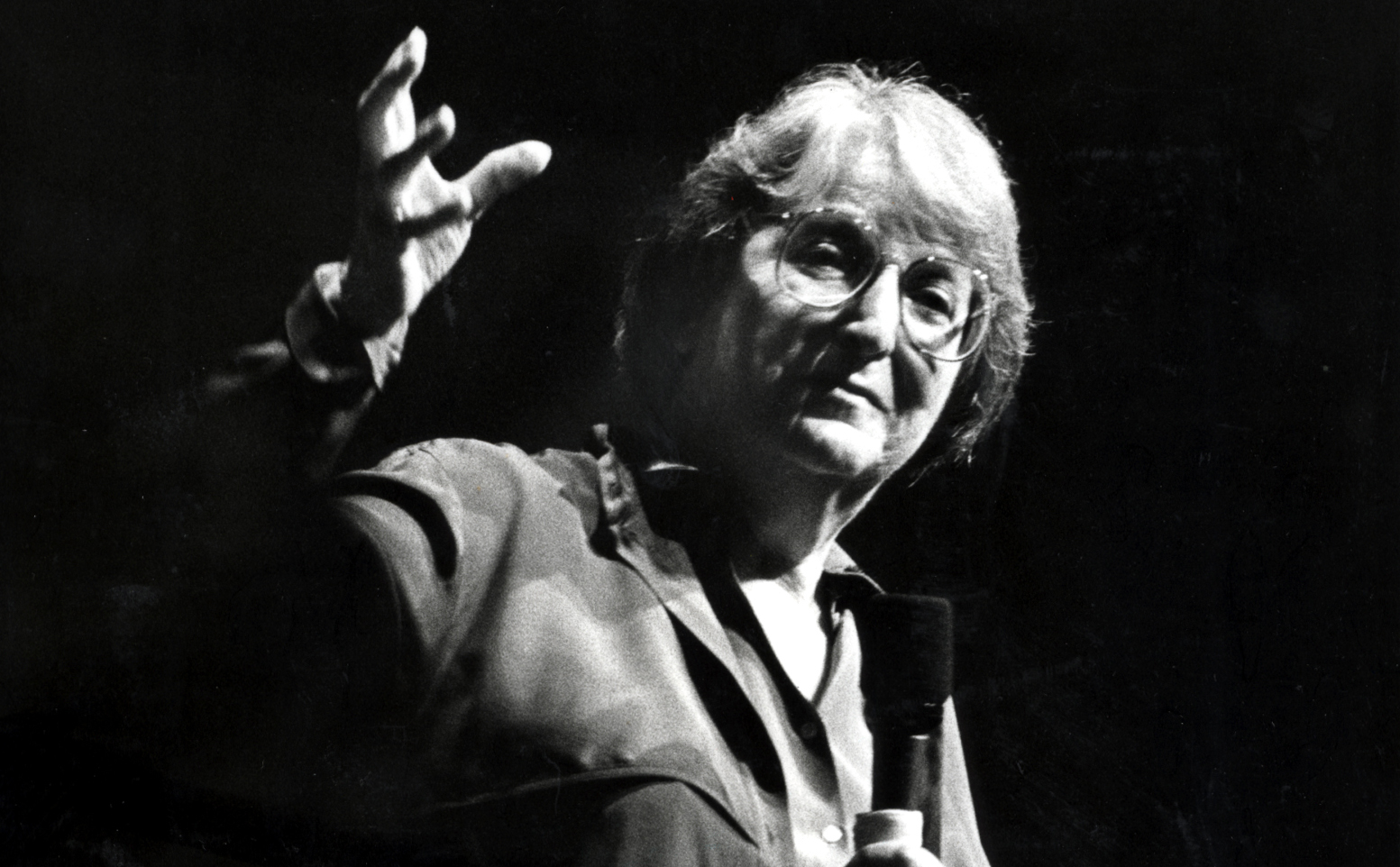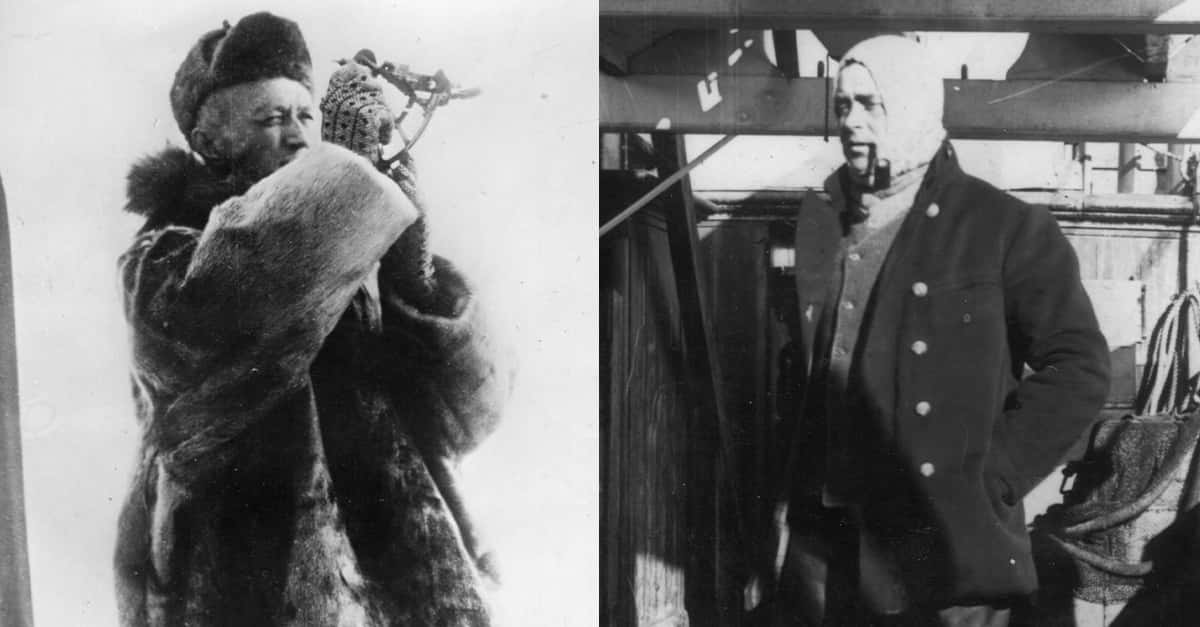When word got out that Quentin Tarantino’s self-professed “final film” was called The Movie Critic, with rumors that it centered on a female lead and was set in the 1970s, most fans jumped to the same conclusion: It must be about Pauline Kael. Tarantino has since denied that the movie will be about her, but it's hard to imagine she won't loom large over the production—Tarantino has openly admitted that Kael was a huge influence on him.
So why does everyone's favorite schlocky, foot-obsessed movie nerd think Pauline Kael is so special? It's simple: Pauline Kael was awesome.
A Chance Encounter
Pauline Kael didn't really care about what she was "supposed" to do. When she finished high school in the mid-30s, she went to university to study literature. She dropped out before getting her degree, but not to return to domestic life. Instead, she moved to New York and fell in with a group of bohemian artists.
For the next decade, Kael just made ends meet. She had a child, Gina, with poet and filmmaker James Broughton, and raised the girl herself. She worked as a seamstress, a cook, and—for a brief time—as an advertising copywriter. Then, in 1952, a chance encounter changed her life forever.
You're A Critic, Pauline
It's the kind of origin story every wannabe film critic dreams of: The editor of the now-legendary City Lights magazine in San Francisco overheard Kael arguing with a friend about movies in a coffee shop. He liked what he heard, so he approached her and asked if she'd like to write a review of Charlie Chaplin's Limelight for the magazine (she hated it).
Just like that, Pauline Kael became a film critic. The movies would never be the same.
Pauline Kael didn't give a rats what was going on in the world of film criticism. Robert Ebert put it best: "She had no theory, no rules, no guidelines, no objective standards... With her it was all personal." That meant Pauline Kael's reviews often ran completely contrary to contemporary criticism.
The Beat Of Her Own Drum
She despised The Sound of Music, maybe one of the most beloved films of the 1960s, calling it "a sugarcoated lie that people seem to want to eat." Meanwhile, she raved about Bonnie and Clyde, a movie that nearly all of her professional peers thought was garbage.
In fact, her Bonnie and Clyde review was so contrary to mainstream opinion that her magazine at the time, The New Republic, refused to publish it. The New Yorker ended up publishing the piece—and good thing, too. Bonnie and Clyde proved to be one of the first landmark movies from New Hollywood, a movement that would dominate theaters for the next decade.
As the landscape of film changed, Pauline Kael was ready to meet it, while her contemporaries were still stuck in the past.
 Bonnie and Clyde, Warner Bros.-Seven Arts
Bonnie and Clyde, Warner Bros.-Seven Arts

Sign up to our newsletter.
History’s most fascinating stories and darkest secrets, delivered to your inbox daily. Making distraction rewarding since 2017.
Kiss Kiss Bang Bang
You can read Kael today in one of her many books, such as I Lost It At The Movies, Kiss Kiss Bang Bang, and When The Lights Go Down. Even decades later, her writing feels personal, original, and modern. But this isn't to say that Pauline Kael had perfect taste in movies. Far from it.
It's not like Pauline Kael was some Nostradamus for underappreciated-in-their-time masterpieces. She hated movies like Network, It's A Wonderful Life, and 2001: A Space Odyssey. I disagree with her! If you think the mark of a good critic is that they love every movie with a 90% Rotten Tomatoes score, then Pauline Kael isn’t for you. Thinking her “taste” was what made her a great film critic is missing the point.
FREEDOM
Pauline Kael was free, at a time when movie critics were not. When Kael started writing, expectations for movie criticism were painfully rigid (at least to modern tastes). There was a rubric for what made a good film, and few critics drew outside the lines. But that wasn’t how Pauline Kael watched movies.
Film was a personal experience for her, and whatever she felt, you knew her opinion would be thought-provoking. As movies moved away from the constraints of the Golden Age of Hollywood and into the brave unknown, many critics couldn't keep up—but Pauline Kael wasn't one of them.











